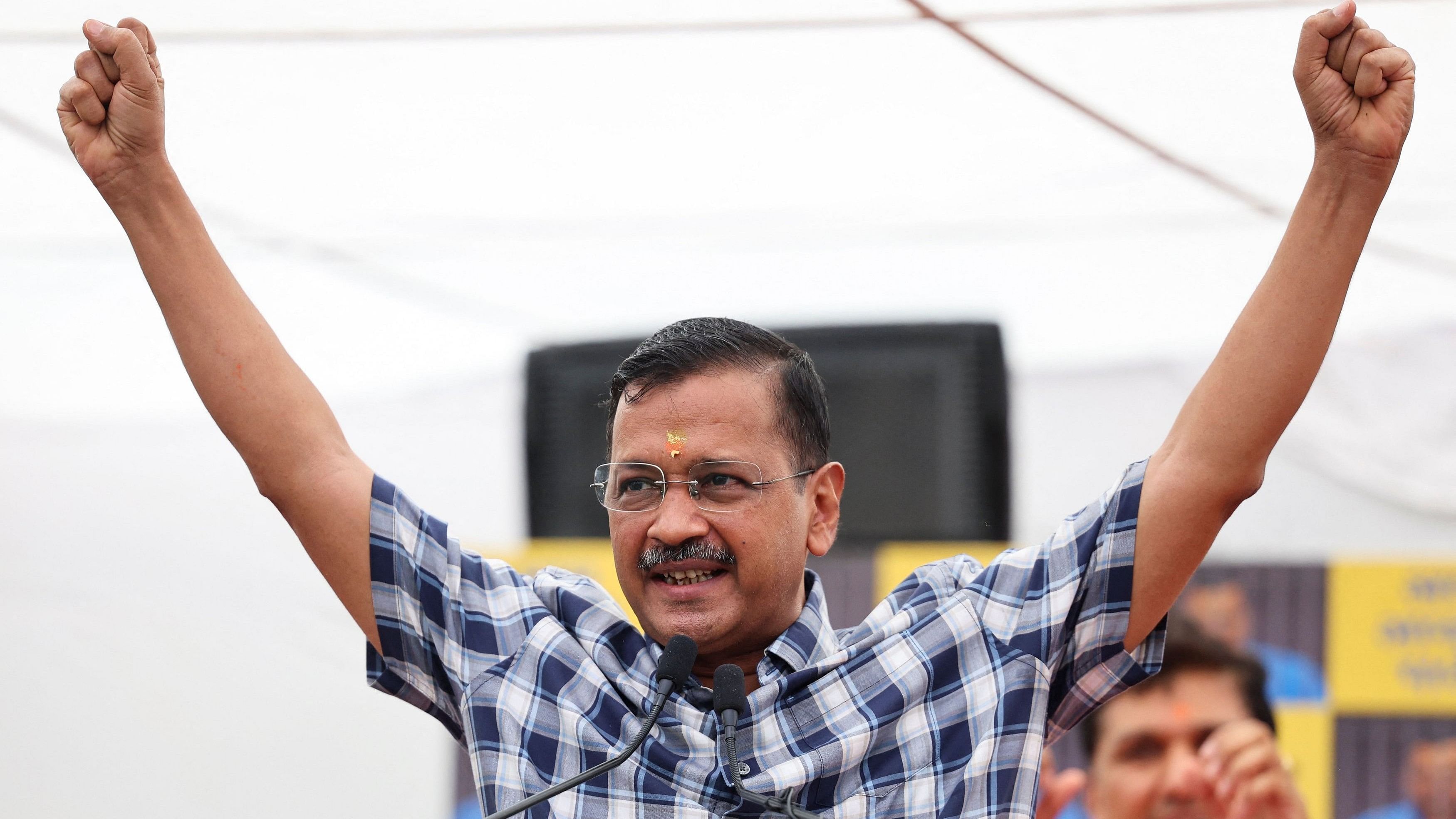
Delhi CM Arvind Kejriwal
Credit: Reuters Photo
By granting interim bail to Arvind Kejriwal, Delhi chief minister and AAP leader, the Supreme Court has corrected a wrong and ensured that he exercises his political and democratic right to campaign in the elections.
The court has separated the legality of Kejriwal’s arrest from its politics, and while it has not decided on its legality, it has made it clear that his right to campaign for his party cannot be denied. It has granted Kejriwal bail till June 1, when voting in the Lok Sabha election ends.
There are conditions for the bail–Kejriwal cannot attend the chief minister’s office and cannot in the normal course sign an official file. It may be said that it is the AAP leader Kejriwal who has got bail, not Chief Minister Kejriwal.
The court’s focus was on fair play in the ongoing elections. By granting bail to Kejriwal, the court has recognised that his arrest and forced removal would queer the electoral pitch. To that extent, the court’s decision may be taken as a comment on his arrest, especially on its timing. The court has rejected the contention of the Enforcement Directorate (ED) that granting bail to Kejriwal would mean giving special privilege to politicians, as voting and campaigning are not fundamental rights. The court said a “more holistic and libertarian view is justified” because the circumstances brought about by the elections are “significant” and compelling. It also noted that though Kejriwal faces charges, he is a chief minister and leader, and not a habitual offender. It also noted that the investigation has been pending since August 2022.
The court may not have recognised the right to participate in the elections but it has underlined the importance of participation in elections. It granted bail to Kejriwal though he had not asked for bail.
He had challenged his arrest but the court decided that he should be given the freedom to participate in the elections. The ED made contentions on democratic rights and even argued that granting bail to Kejriwal would incentivise criminals to join politics. It is not the ED’s remit to discuss democratic rights and politics and its processes.
The court rightly rejected them. It recognised the importance of free and fair elections and the fact that they cannot be free and fair if important politicians are denied participation in them. It has said Kejriwal’s bail is no precedent, but it has reaffirmed an important democratic principle. It is a ruling against elections without Opposition or elections with a crippled Opposition.